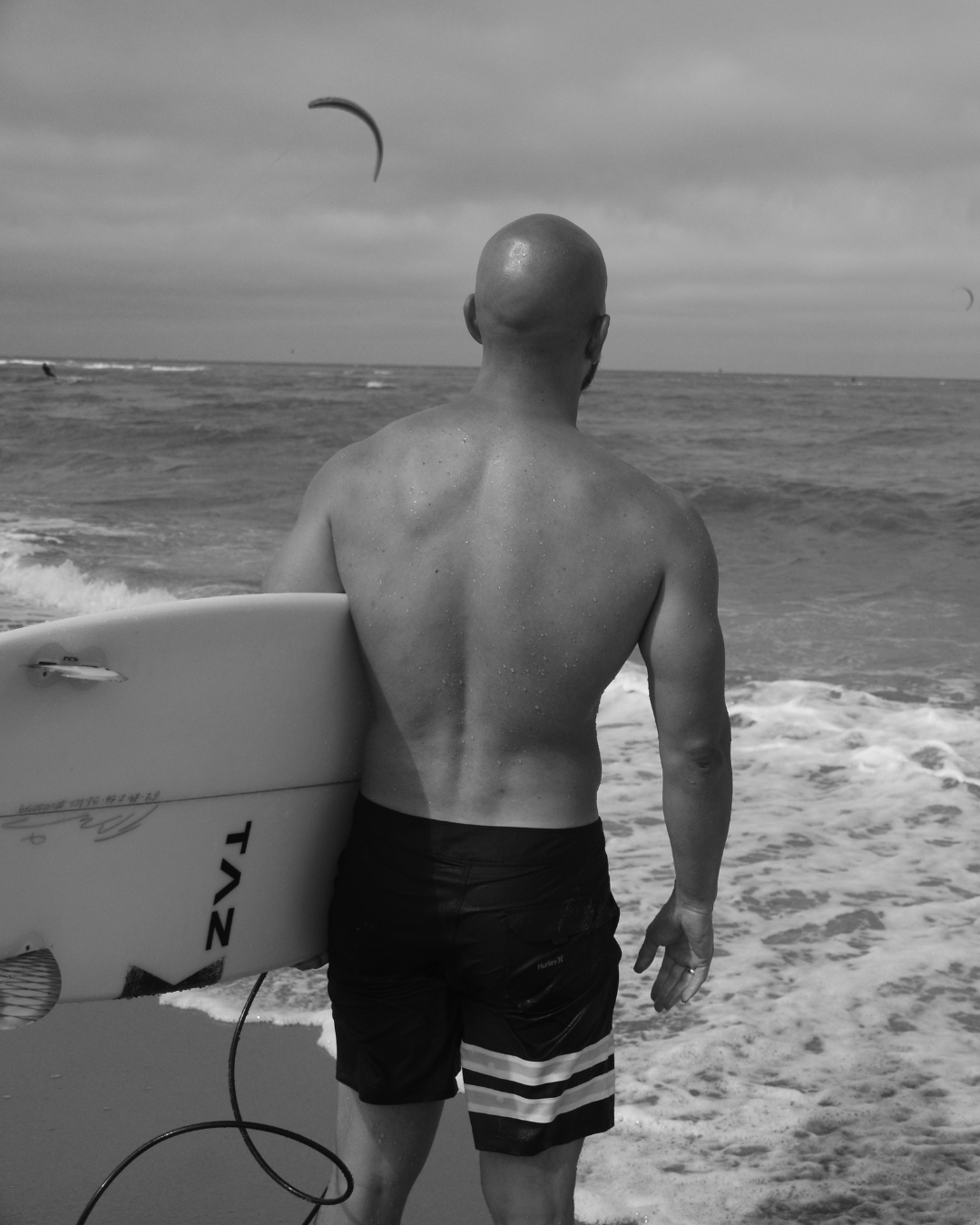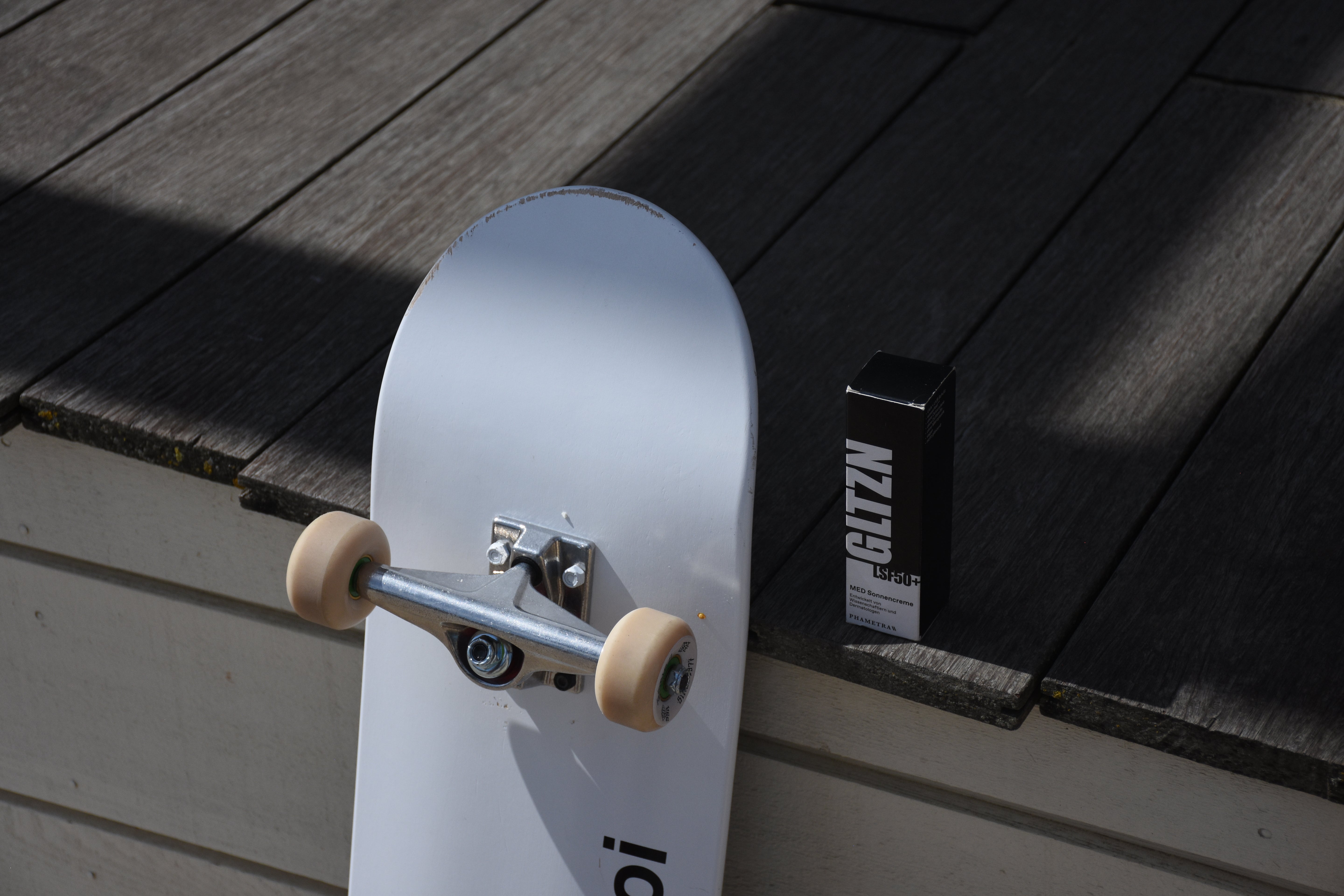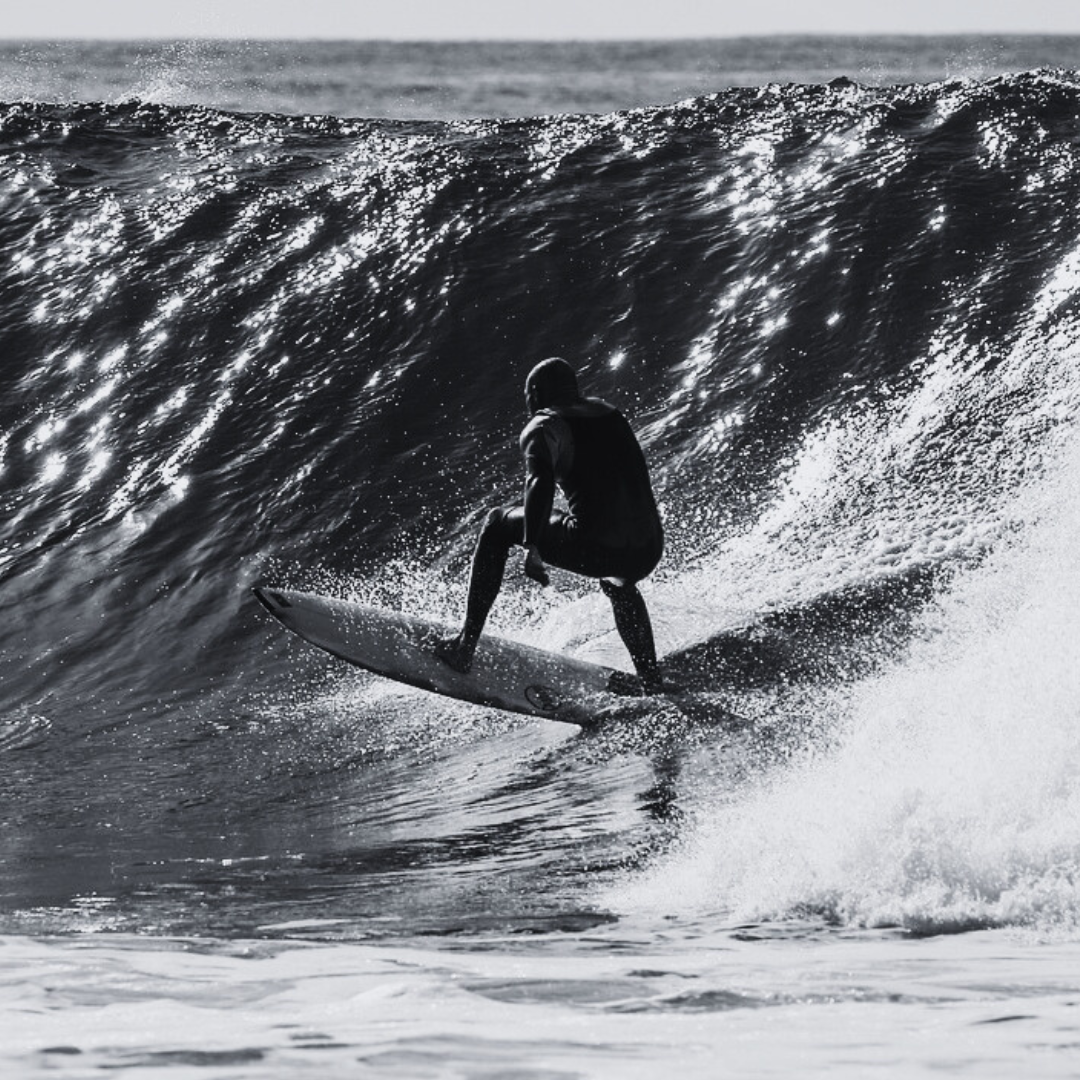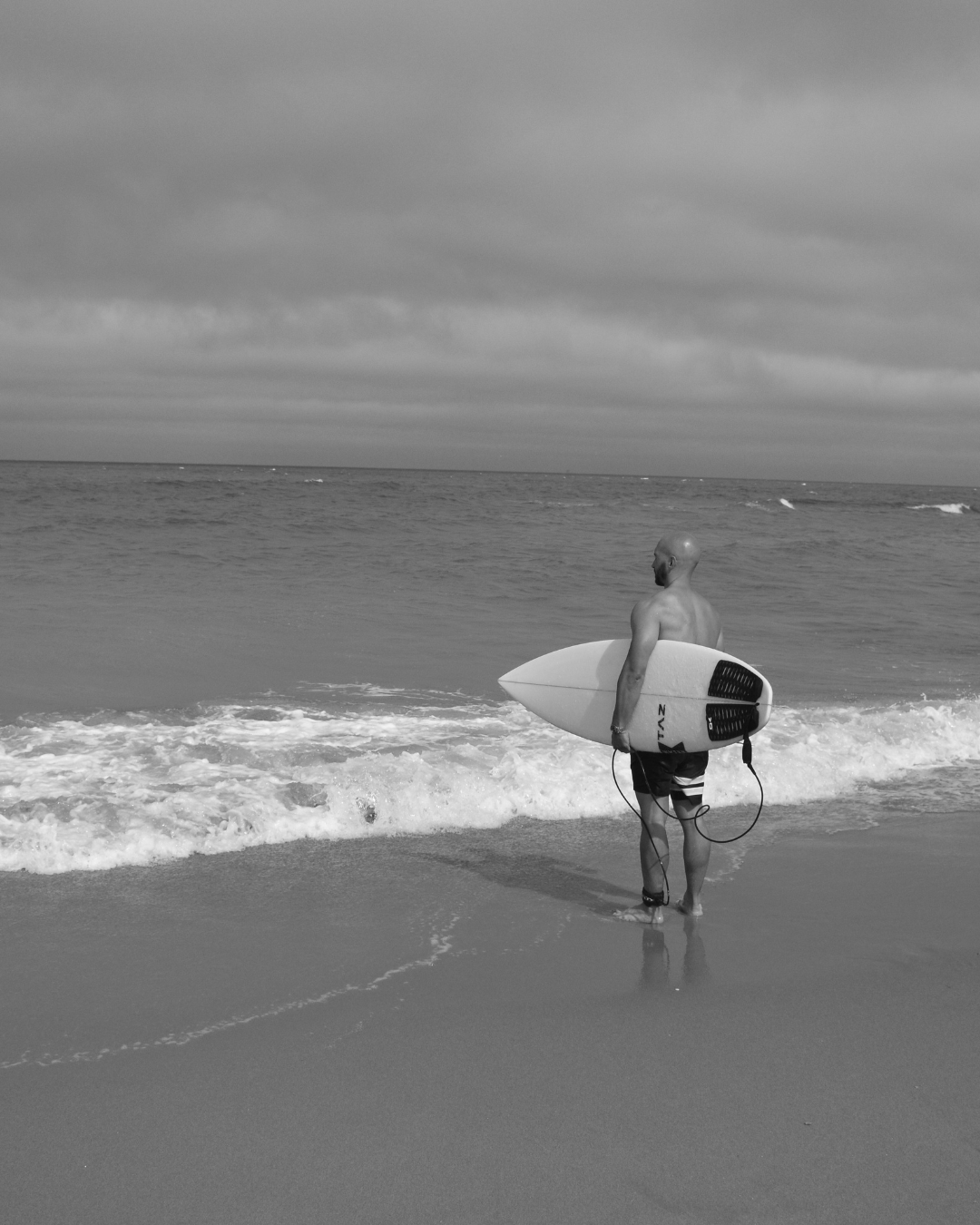Why GLTZN deliberately refrains from using it
When developing our formula, we were careful from the very beginning to avoid using octocrylene. Why? Because we believe in tolerable, sustainable, and skin-friendly sun protection, especially for sensitive skin and the scalps of bald people.
What is octocrylene and why is it problematic?
Octocrylene is a chemical UV filter used in many conventional sunscreens. It absorbs UV rays and is intended to protect the skin from sun damage. However, a growing number of studies point to critical side effects – both for the human body and for the environment.
Octocrylene:
Some reasons why you should avoid octocrylene in sunscreen:
-
Skin irritation and allergic reactions: Redness, itching or rashes can occur, especially on sensitive skin.
-
Hormonal effects: Octocrylene is suspected of affecting the hormonal balance because it can have a hormone-like effect.
For people with sensitive scalp, sun allergy or Mallorca acne, alternative sun protection is therefore particularly important.
Octocrylene and environmental damage: The Hawaii example
Octocrylene accumulates in marine ecosystems and has been identified as harmful to coral reefs. Therefore, Hawaii passed the Hawaii Reef Law, which bans sunscreens containing octocrylene to protect the fragile underwater world.
GLTZN: Effective and environmentally friendly sunscreen without octocrylene
Our solution is called: GLTZN MED sunscreen with SPF50+ – developed by dermatologists, especially for:
-
Sensitive skin
-
Sensitive scalp of bald people
-
People with a tendency to sun allergy or Mallorca acne
This way you not only protect yourself reliably from the sun, but also protect the environment.
For your skin – and the environment
A sunscreen without octocrylene is the better choice for anyone who values skin health, sustainability, and tolerability. With GLTZN, you get a safe alternative – dermatologically tested, environmentally friendly, and perfect for sensitive men's skin, with or without hair.






